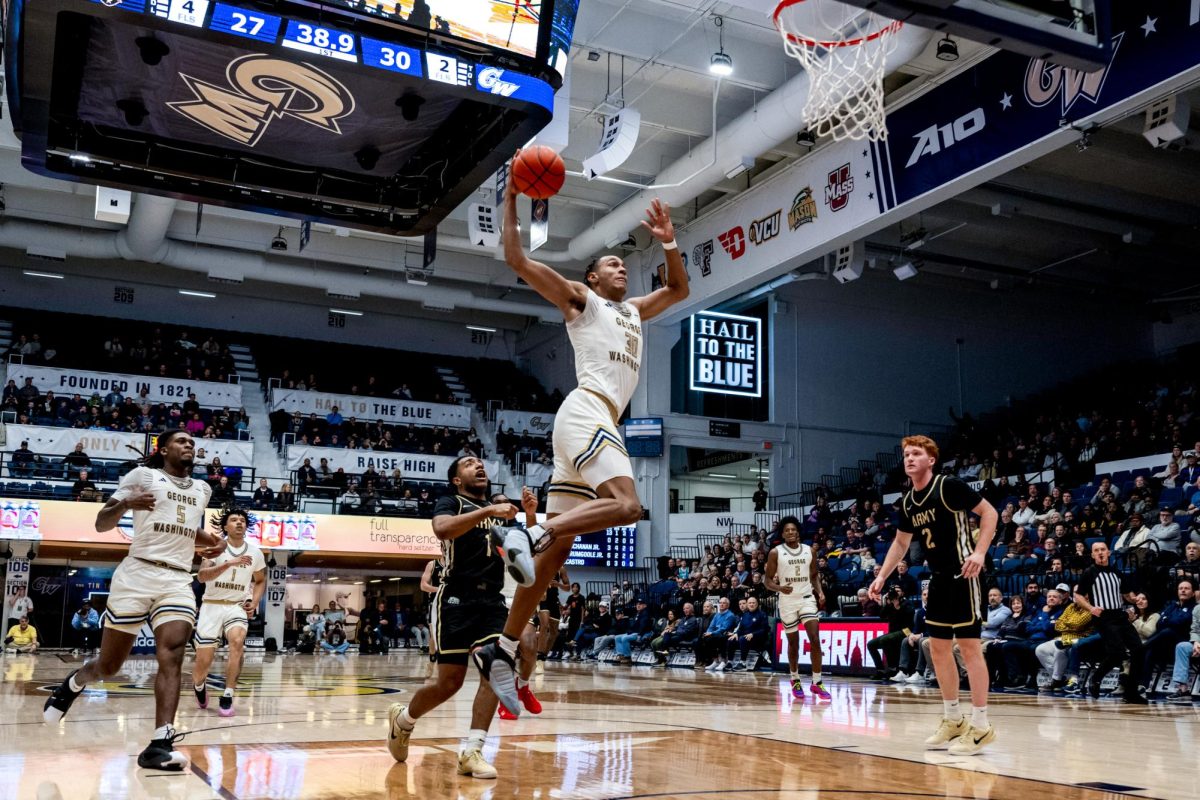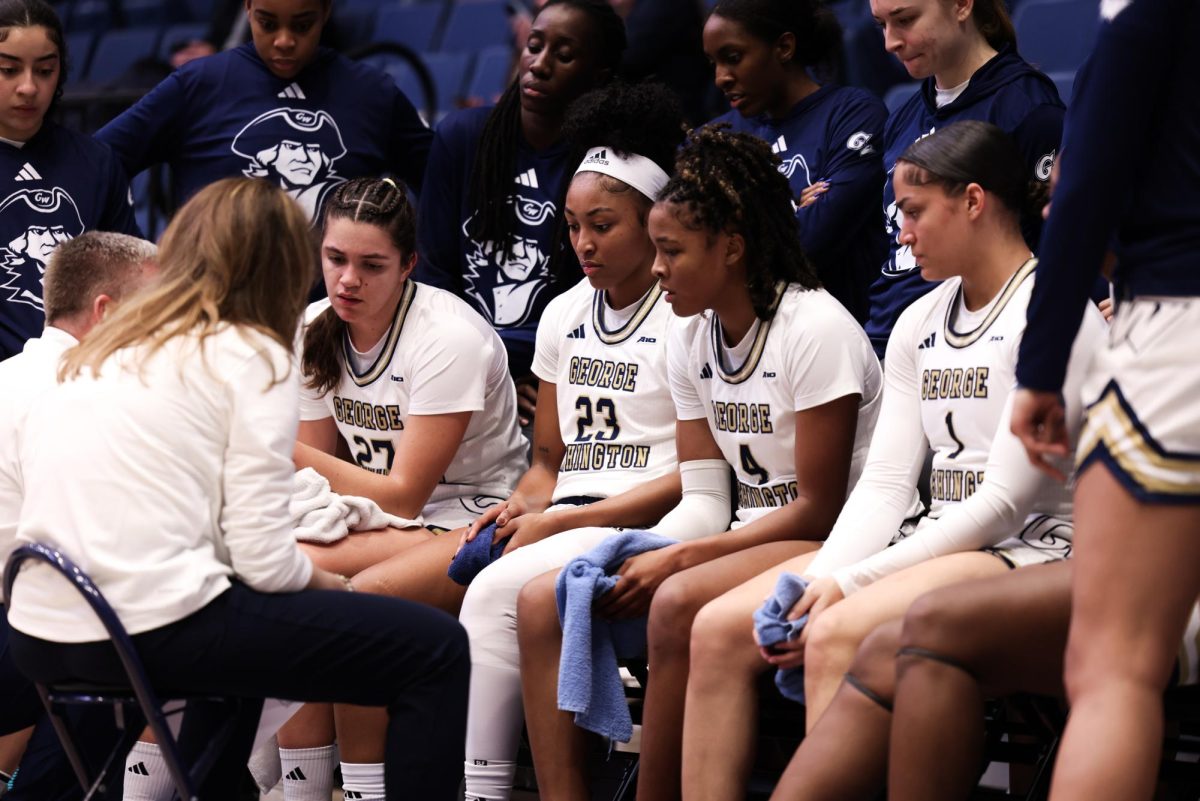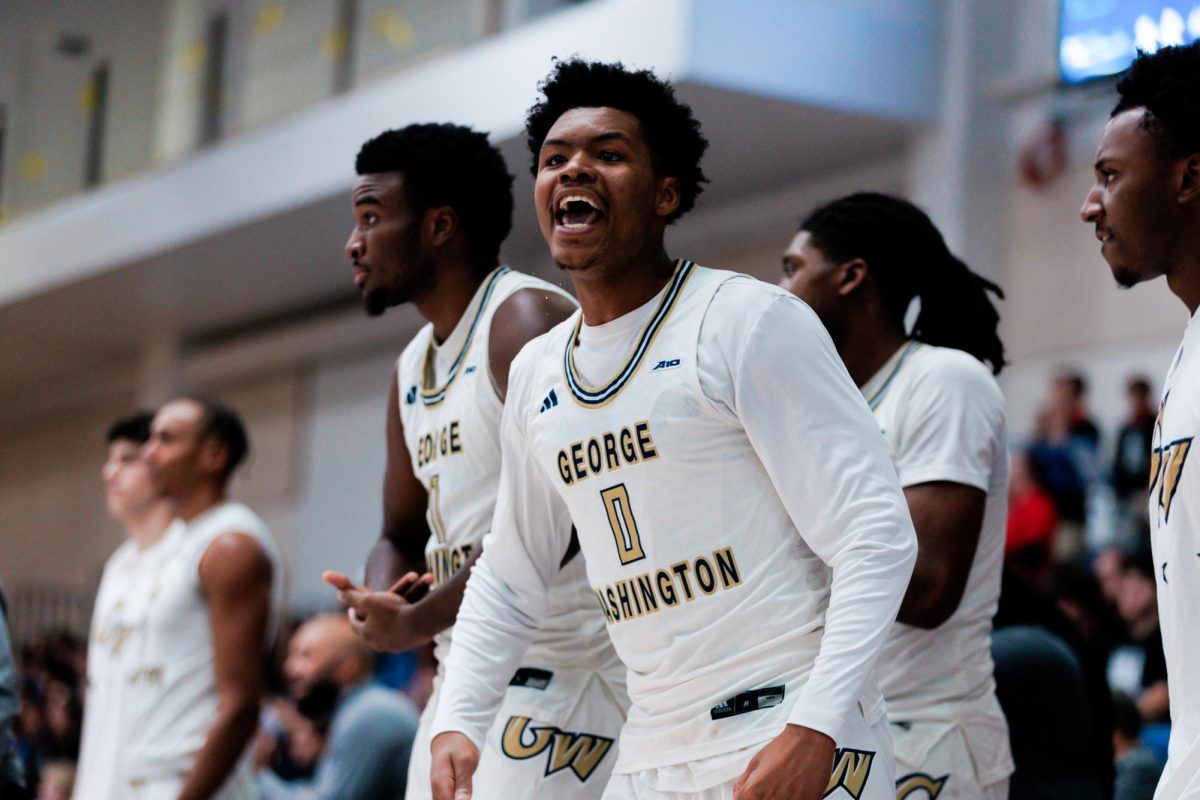This Monday, I stopped by the Karl Hobbs Basketball Academy, an annual camp run by the GW men’s basketball program for children generally between the ages of eight and 15. I talked to a few of the key GW figures involved and watched a lot of kids play a lot of basketball. Here’s my report.
On the third and fourth floors of the Lerner Health & Wellness Center, perched above a normally bustling campus enduring the relative lulls of summer, basketballs pound hardwood with the erratic consistency of corn kernels popping in the microwave as children run about, frantically calling out for one another’s attention. This can only mean one thing, of course: school is in session.
School is, in this case, the Karl Hobbs Basketball Academy, a day camp bearing the name of GW’s head men’s basketball coach and featuring a staff drawing from the school’s basketball program and other members of the local hoops scene. I spent Monday afternoon at the camp, which was in the first day of its second and final weeklong session.
My timing, however, was disappointingly poor: an 11 a.m. arrival meant I missed the namesake’s morning appearance, plus I chose the week when half as many GW basketball players were working the camp as did the first. (I also waited a bit too long to approach Hobbs’s daughter, Rashauna, a soon-to-be senior guard at George Mason and coach in the camp’s 11-to-13-year-old division. By the time I introduced myself, she was making her exit and on her way to class, a fact for which she politely apologized.)
While the camp bears the name of Hobbs, it’s Tyrone Lockhart, the GW men’s team’s director of basketball operations, that runs the show, doling out assignments and directions and overseeing the camp’s staff and attendees. This role requires Lockhart be both basketball coach (“If you bring the ball up, you should be pushing it up.”) and camp counselor (“There’s pizza sauce on the floor. That’s a no-no.”) .
There are several changes in place for the academy this time around: it’s moved a block west from Smith Center to HellWell due to construction and Lockhart has taken the reigns from recently departed former GW assistant coach Darrell Brooks. Much remains the same, however, like many of faces in attendance. Roughly a dozen of the first week’s participants enjoyed the experience so much they stayed on for a second – or, as Lockhart quipped, “their parents couldn’t find a babysitter.”
Though there may be no Coach Brooks, there is a Coach Brooke, as in GW women’s basketball player Brooke Wilson, who sat out her freshman year this past season and retains four years of eligibility. Wilson was one of four current GW basketball players in attendance on this day, along with Joseph Katuka, Travis King and Jabari Edwards from the men’s team.
Their duties alternated between officiating and coaching, at times doing a bit of both. Katuka seemed to comically relish as authority figure over players so small many of them could stand on another’s shoulders and still fall short of looking the 6-foot-10 junior in the eye.
“If someone talks back to me…” Katuka joked, forming a ‘T’ with his hands in the universal shorthand for a technical foul.
But his tough talk seemed to be just that: talk. As a five-on-four fast break unfolded in a game featuring the camp’s youngest division, Katuka was on one knee on the opposite end of the floor, helping the game’s 10th player re-tie his shoe.
Meanwhile, King was at the helm of a squad in the NBA, the camp’s highest level. (The other two are named the A-10 and Big East, respectively.) He said his time on the other side of the player-coach relationship has made him more sympathetic to Hobbs’s plight, as well as helped him “think the game,” which Lockhart says is a key component of the GW players’ experiences.
King didn’t monopolize the power over his team, however. The point guard gracefully ceded the floor during a timeout when one of his players, whose participation was limited by a disability, began pointing out his team’s lack of rebounds and unwillingness to contest shots. King turned to me and smiled.
“My assistant coach,” he said before emphasizing that his players heed their teammate’s advice.
The sheer volume of basketball being played was staggering: for the entire time I was there, the kids were going all-out, exerting endless bounds of energy from start to finish. “They eat a lot of candy,” Wilson explained. Of course.
Wilson, who worked in the 10-and-under league with Katuka, said she enjoys working with the kids and hopes to teach them more than how to make a jump shot or what constitutes a foul.
“We want you to make friends, learn to interact with other people and have fun,” Wilson said. “It’s not just basketball.”
There was a definite positive consensus among those working the camp (“It’s good. It’s fun.”), which may bode well for an upcoming season in which both of GW’s teams will be chock full of youth: a half-dozen freshmen litter the men’s roster, while the women’s team features just one junior and no seniors.
King, for one, doesn’t seem to think it will be much of a problem.
“It’s gonna be fun,” the team’s most experienced guard said, a smile breaking out behind his words. “It’s unusual, but it will be fun.”






